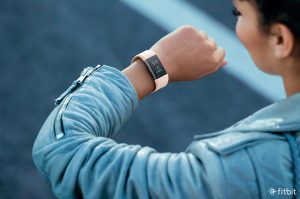While it took a while for smartwatches to find their place in consumers’ tech device arrays, the wearable device market has shown remarkable growth as of late—and it looks increasingly like it may be a winner-takes-all market.
According to the latest Strategy Analytics report, global smartwatch shipments increased an incredible 44 percent in the second quarter of 2019 to 12.3 million units sold. Unfortunately for wearable device maker Fitbit, this growth in smartwatch shipments comes mainly due to competitor Apple, who accounted for almost half of all units sold in the second quarter with 5.7 million Apple Watches shipped. Even worse for Fitbit, Samsung slid into the number two spot with sales of two million smartwatches in the second quarter, leaving Fitbit in third place with 1.2 million smartwatches shipped.
Significantly, while Apple and Samsung both increased their share of the wearable device market year-over-year—from 44.4% to 46.4% for Apple, and from 10.5% to 15.9% for Samsung—Fitbit faced a dramatic drop in market share. While the activity tracker specialist held 15.2% of the market in the second quarter of 2018, it managed to hold onto only 9.8% of market share in the same period this year.
Why has Fitbit been struggling compared to its rivals? Industry analysts theorize that the device maker has had a hard time finding a compelling product to offer at the various smartwatch price points. As Strategy Analytics executive director Neil Mawston pointed out, “Fitbit has struggled to compete with Apple Watch at the higher end of the smartwatch market, while its new Versa Lite model has struggled to take-off at the lower end.” In particular, the Versa Lite has been called out as not affordable enough compared to competing models. At the same time, the “regular” Versa model has been on the market for a long time.
Luckily for Fitbit, a second-generation Versa is rumored to be launching next month, with added features such as Alexa voice command integration, dramatically improved battery life and Fitbit Pay capabilities. However, as Mawston points out, “Fitbit will have to move fast to execute a recovery, because Samsung, Garmin, Fossil and other competitors are keen to grab a slice of its valuable health and fitness customers."























